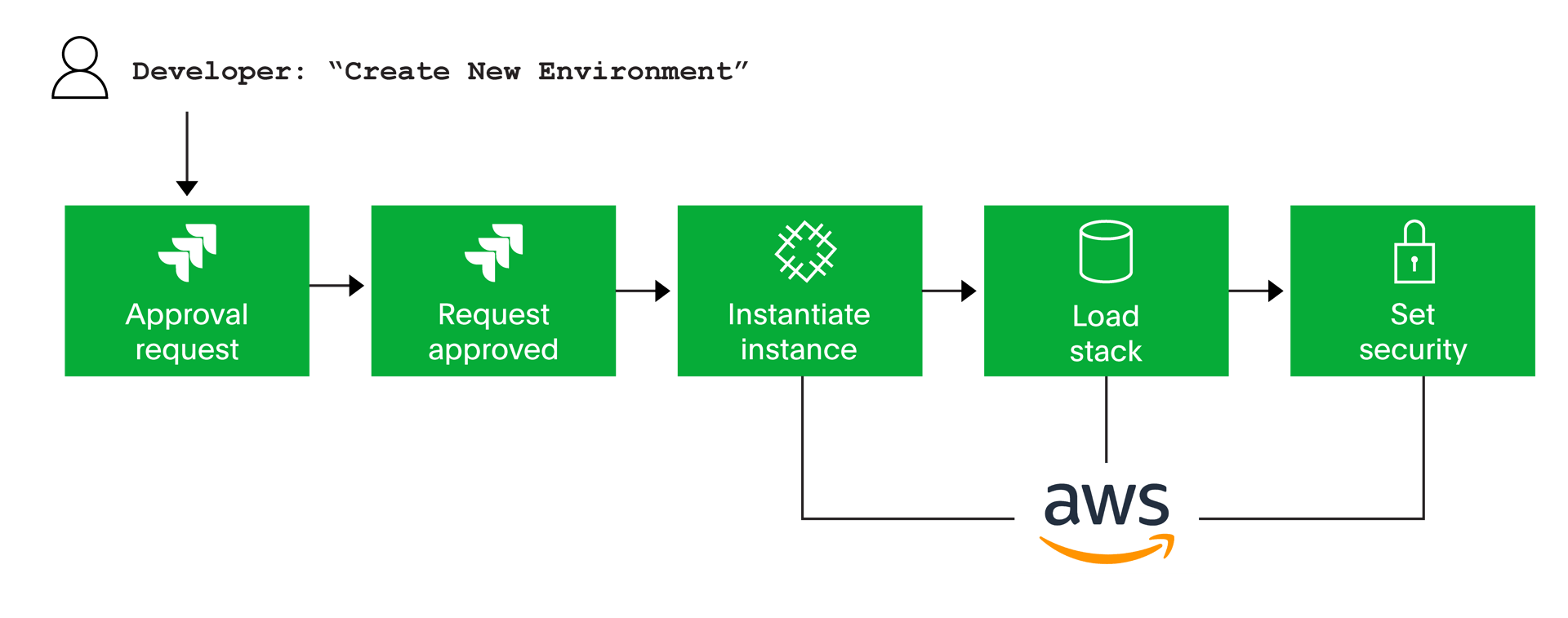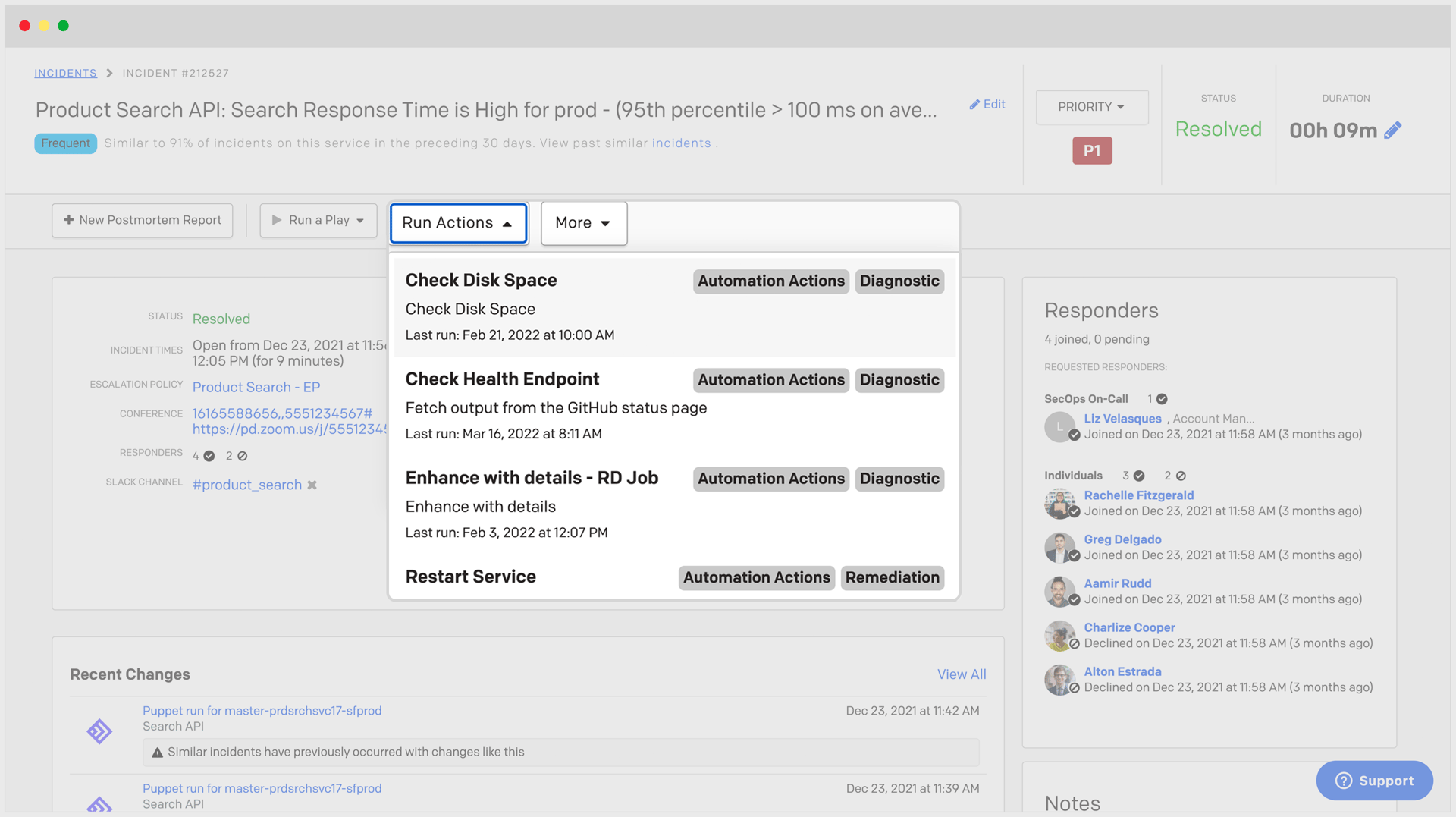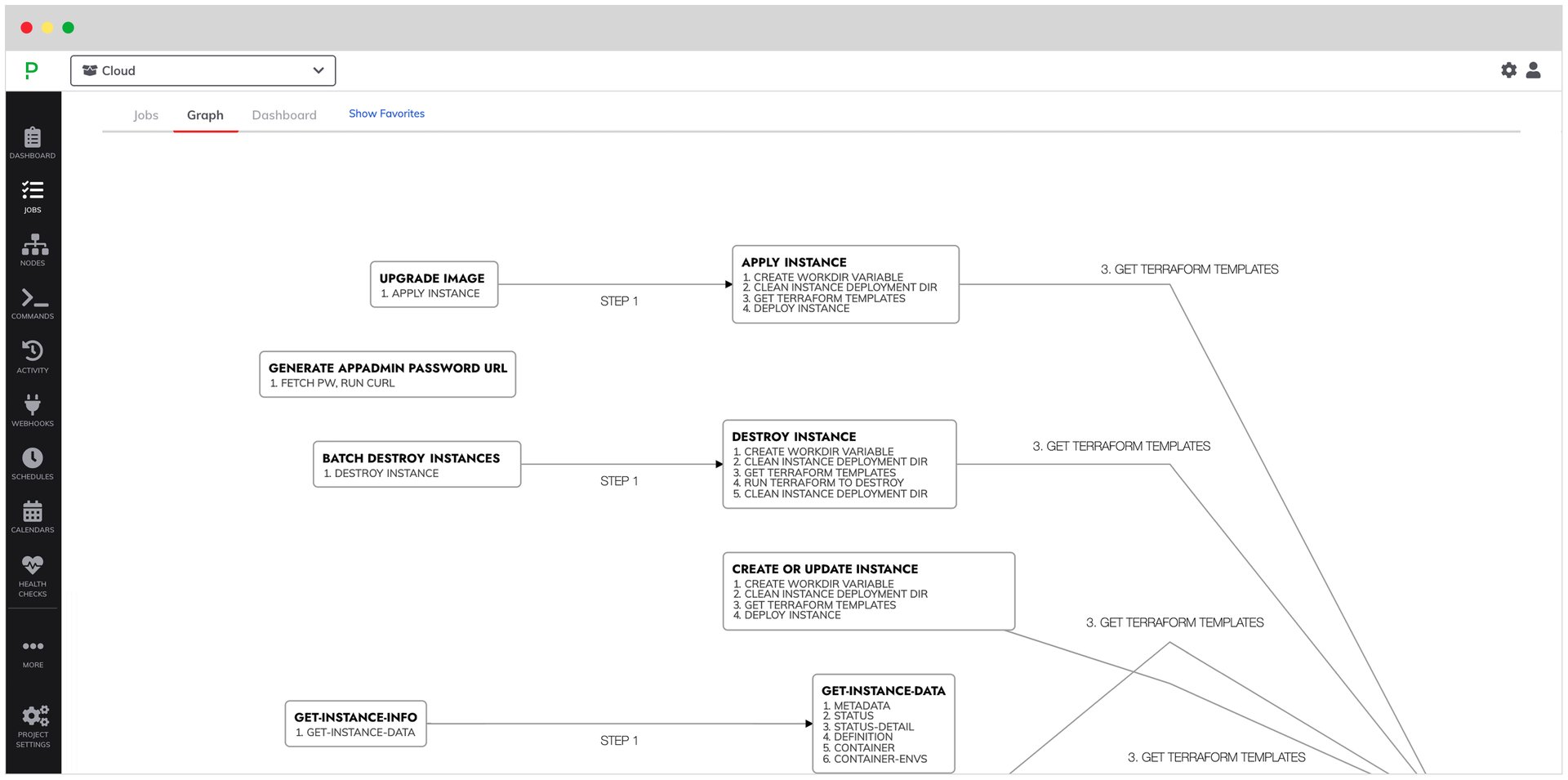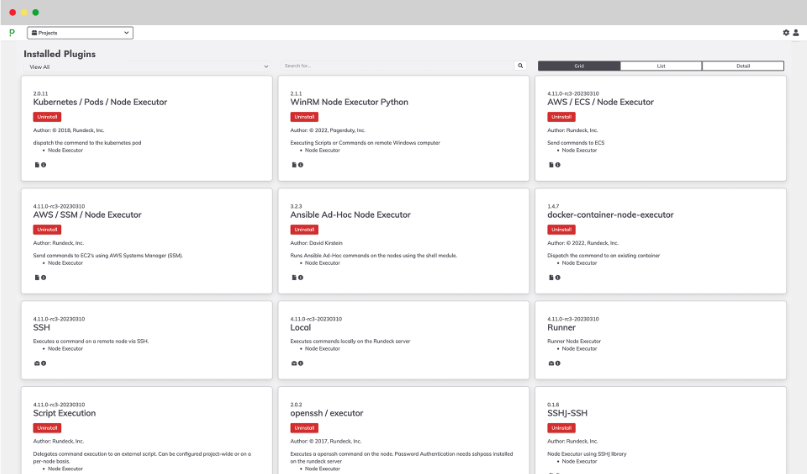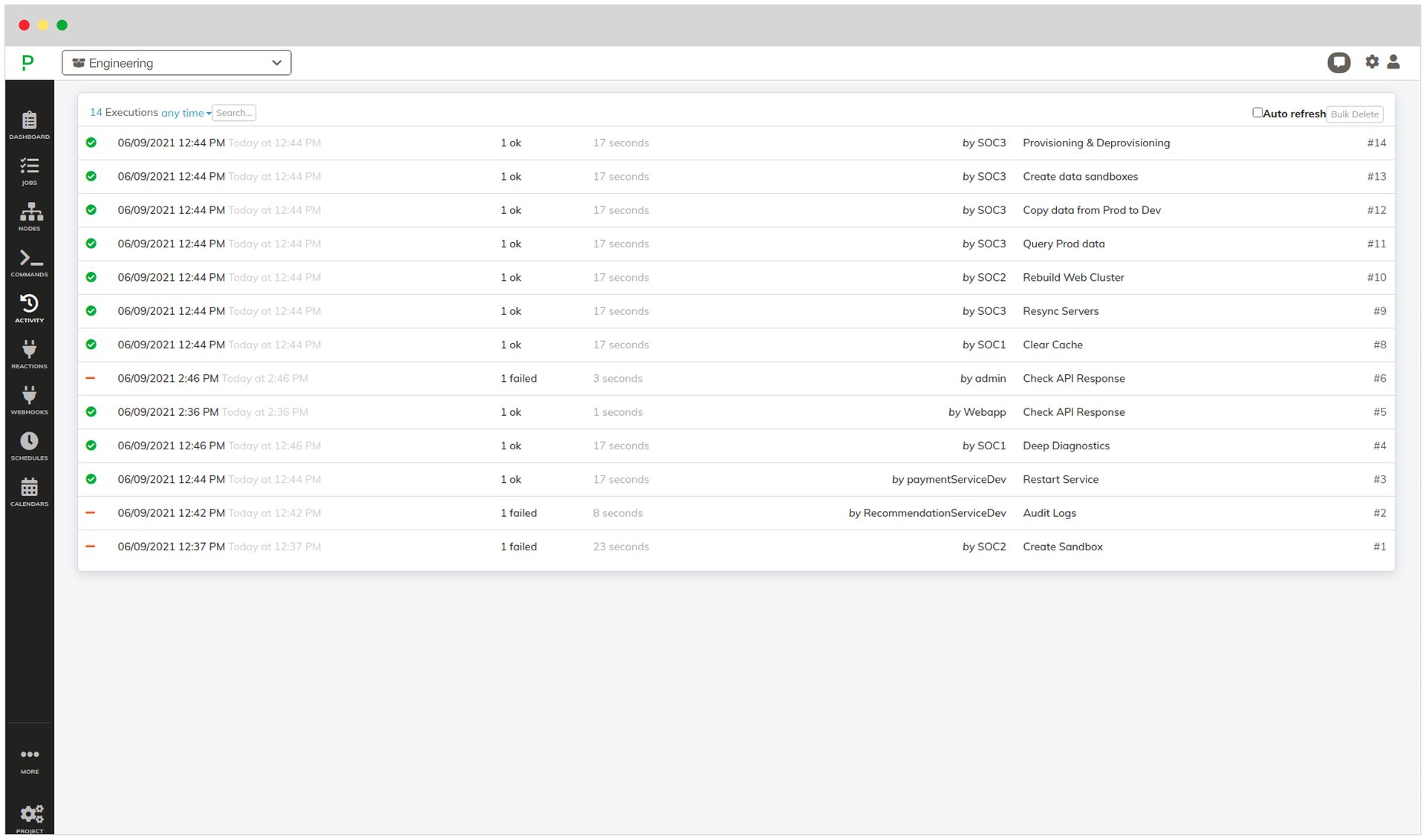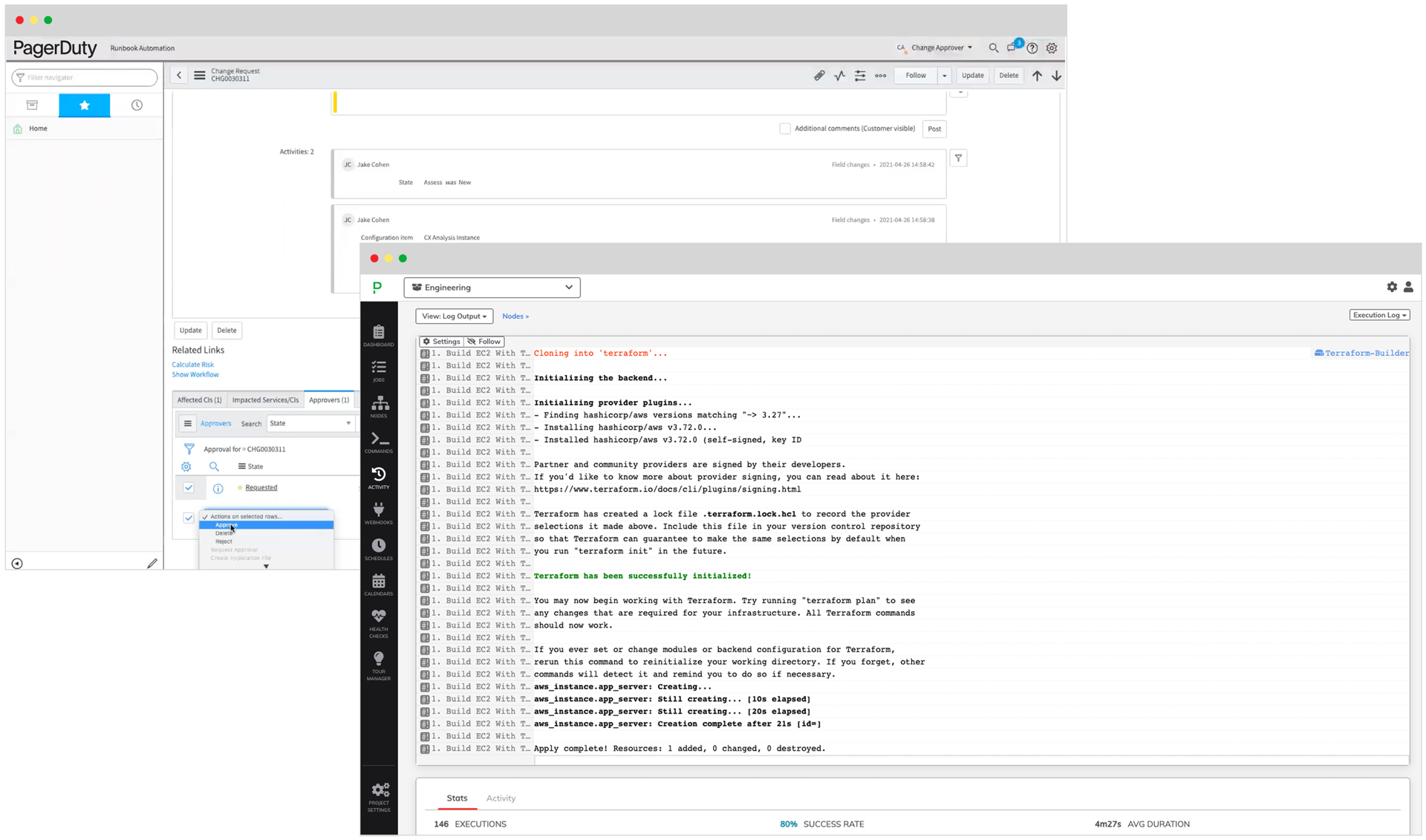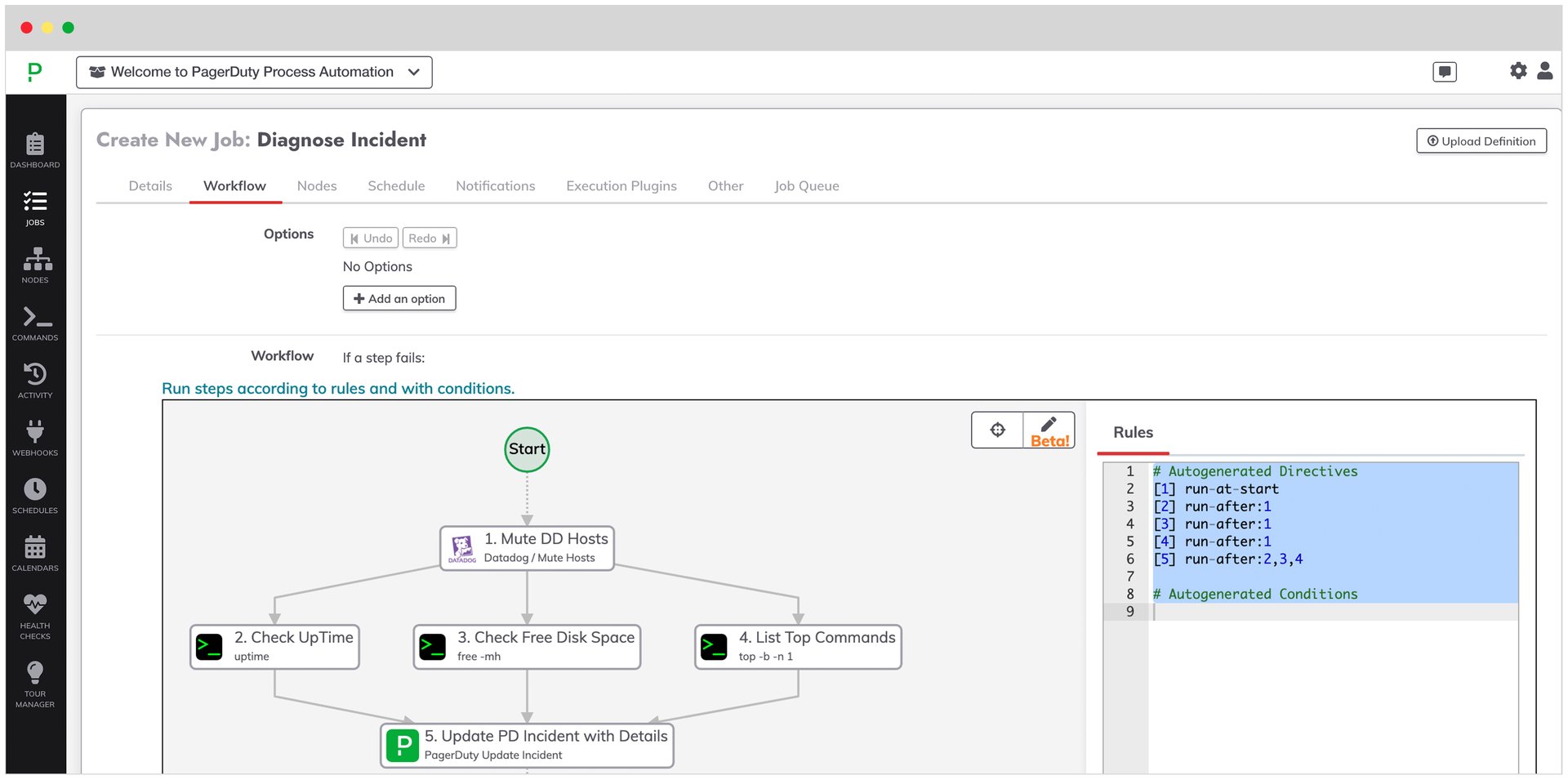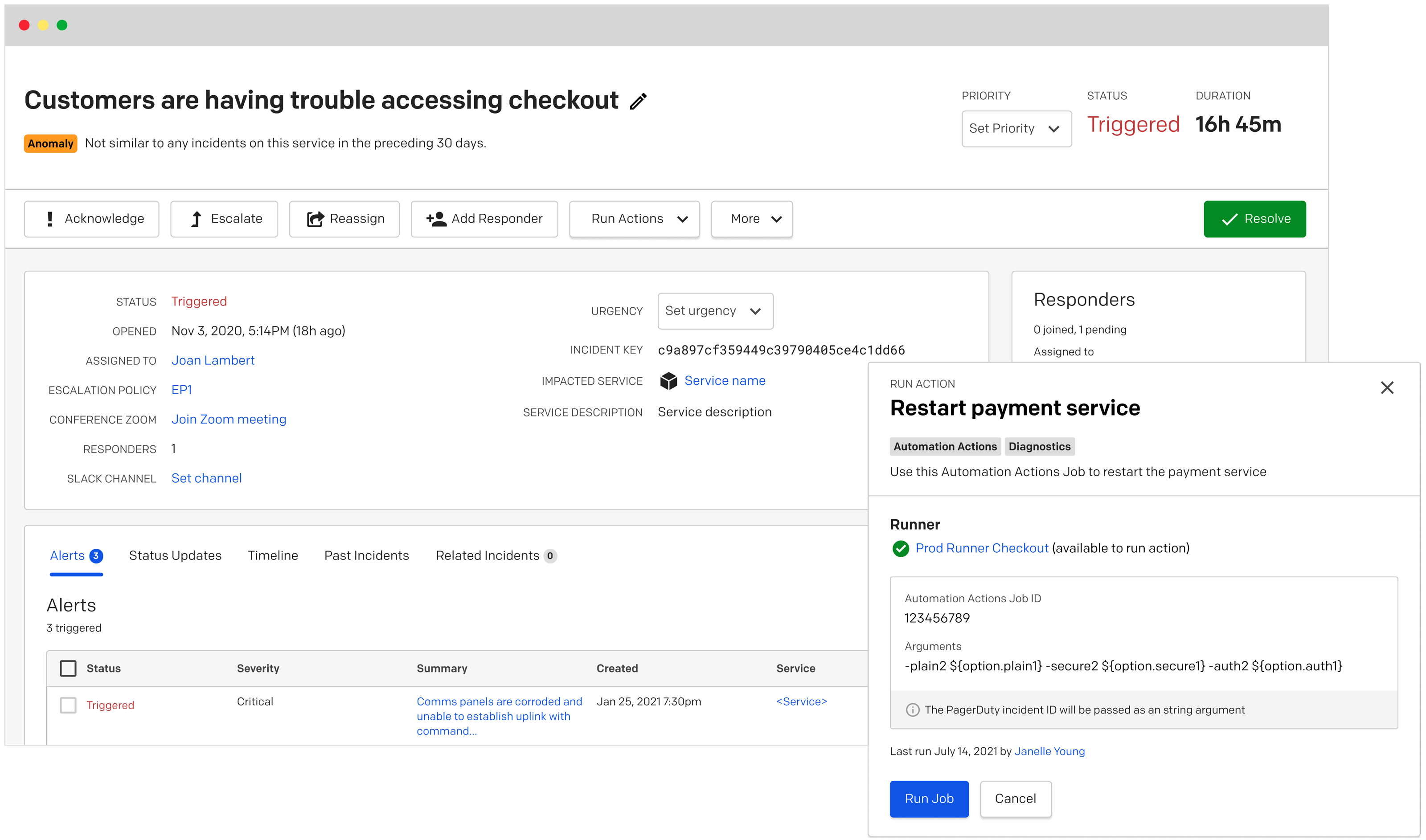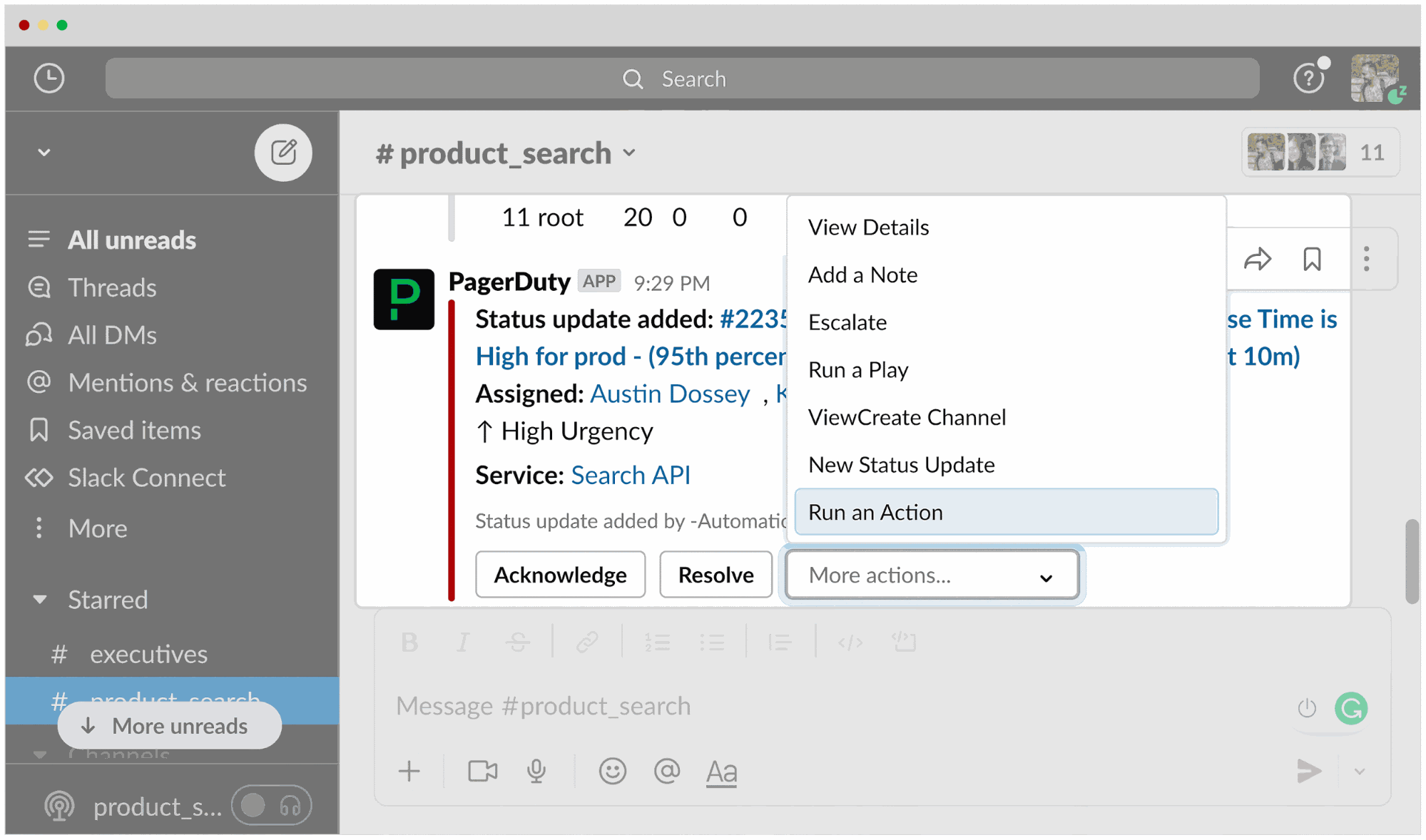- PagerDuty /
- Platform /
- Automation /
- Runbook
PagerDuty Runbook Automation
PagerDuty Runbook Automation, part of the PagerDuty Operations Cloud, provides a SaaS-based environment for authoring, managing and executing automated workflows that span across departments, technologies, and networks.

Replace manual procedures in your runbooks with automated self-service tasks.
Resolve tasks 99% faster
Delegate Self-service task automation across secure cloud and data center environments, such as deployments and patching operations for developers.
Simplify security and compliance
Securely run automation in locked-down environments. Bake-in security and compliance with authentication, access control, and logging of every activity.
Reduce support costs by 50%
Reduce personnel time needed for operations by standardizing procedures, delegating expert automation to generalists, and eliminating repetitive tasks.
Discover what PagerDuty Automation can do for you
How PagerDuty Runbook Automation Works

Automation authors rapidly create new automated workflows by prompting generative AI about the kind of project they want to develop. They finish the automation utilizing the easy to use low-code / no code GUI development environment. Once tested and approved, automated jobs can then be delegated to end users through UI plugins to applications such as Jira or ServiceNow, and as APIs. These jobs can be run on-demand by human users, triggered by events, or scheduled for routine execution.
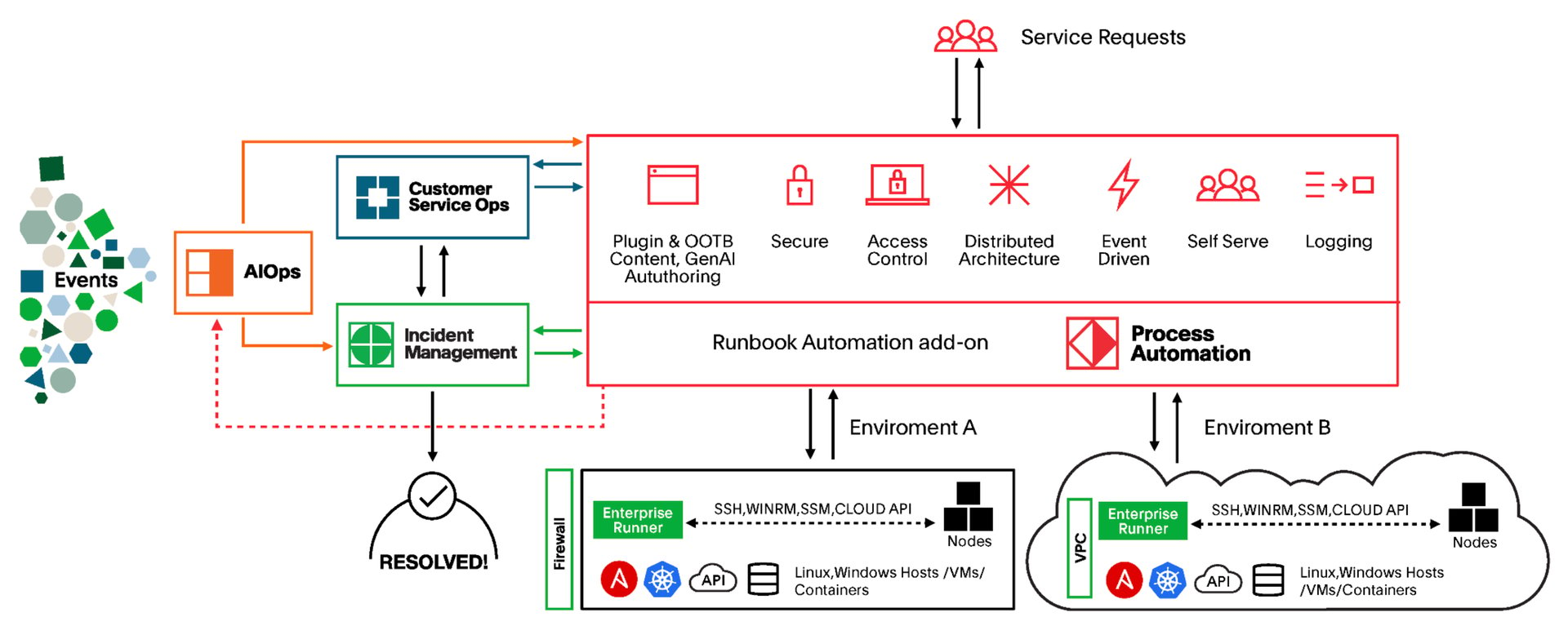
Runbook Automation is seamlessly integrated to the PagerDuty Operations Cloud, allowing users and event triggers to invoke automation for diagnosis and remediation. It provides a comprehensive set of features for rapid automation development: Plugin integrations; Gen-AI job authoring capabilities; A low code automation development environment for human automation authors; Secure access to your environment and infrastructure with integration to LDAP or SSO; Role & context-based access control to limit who can develop or run automation; Connections to any, and all of your On-prem, Cloud, and Edge environments to execute automation; Event-triggered automation such as from PagerDuty AIOps, Incident Response, or CSOPs; Automatic logging that creates an audit trail for security and regulatory compliance.
Furthermore, end-users outside of PagerDuty can leverage it for general self-service IT use cases.
PagerDuty Runbook Automation is a favorite on G2 including Easiest to Use and Momentum Leader for Summer 2023


